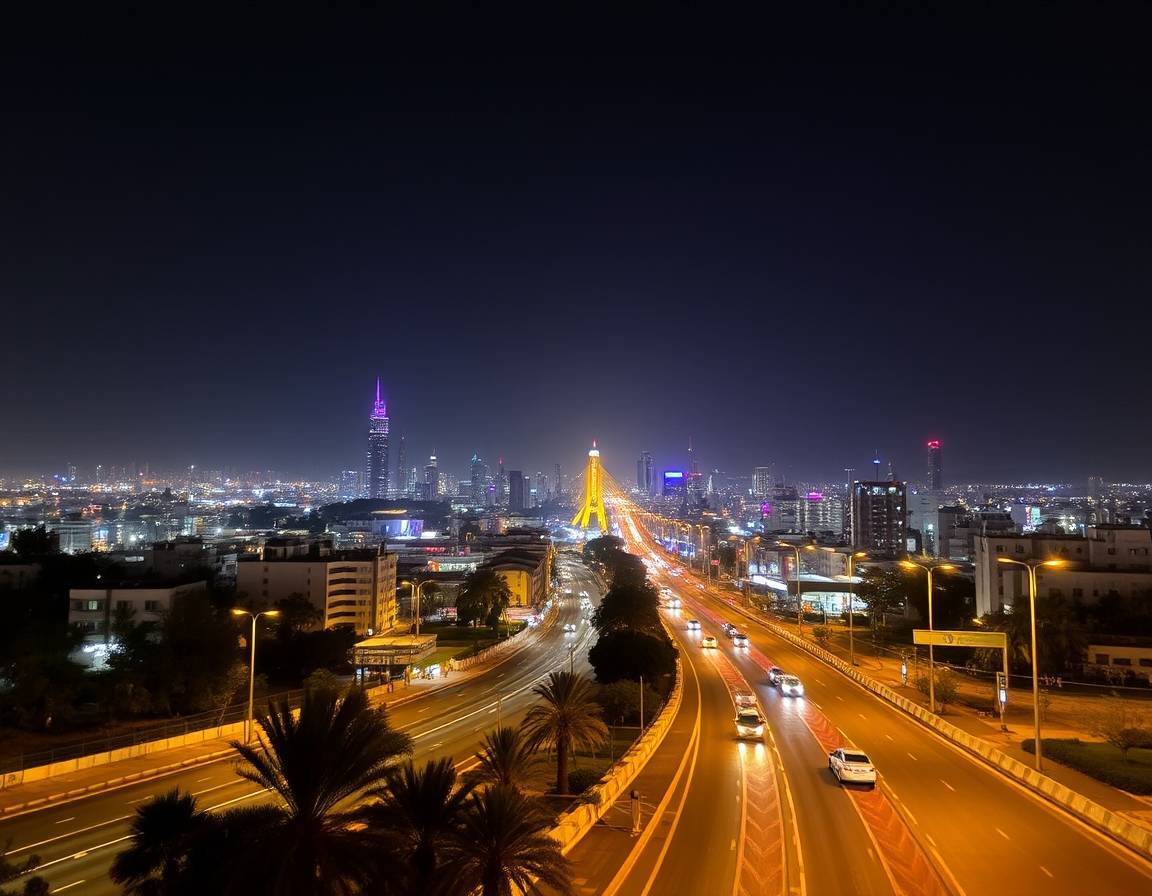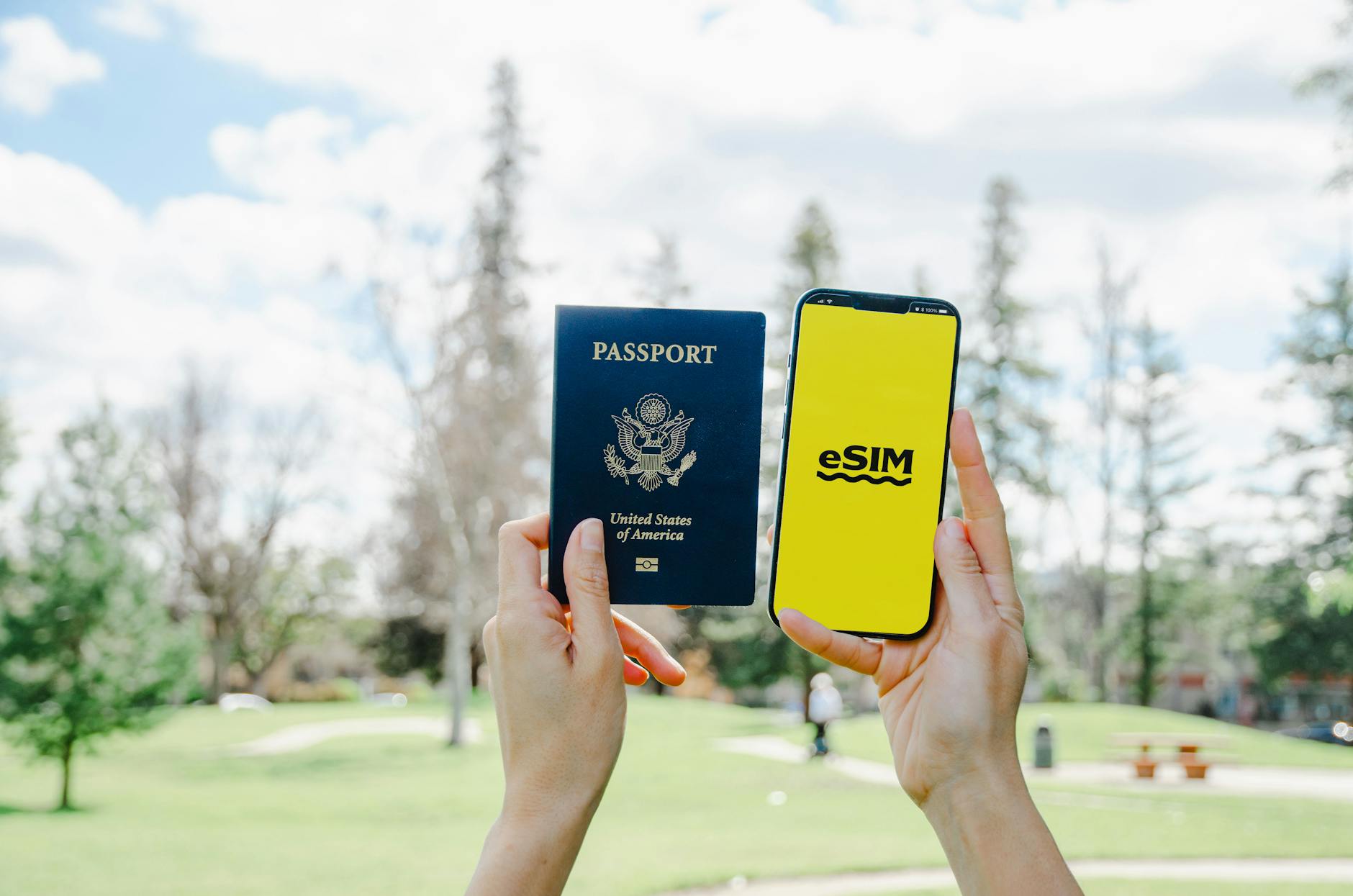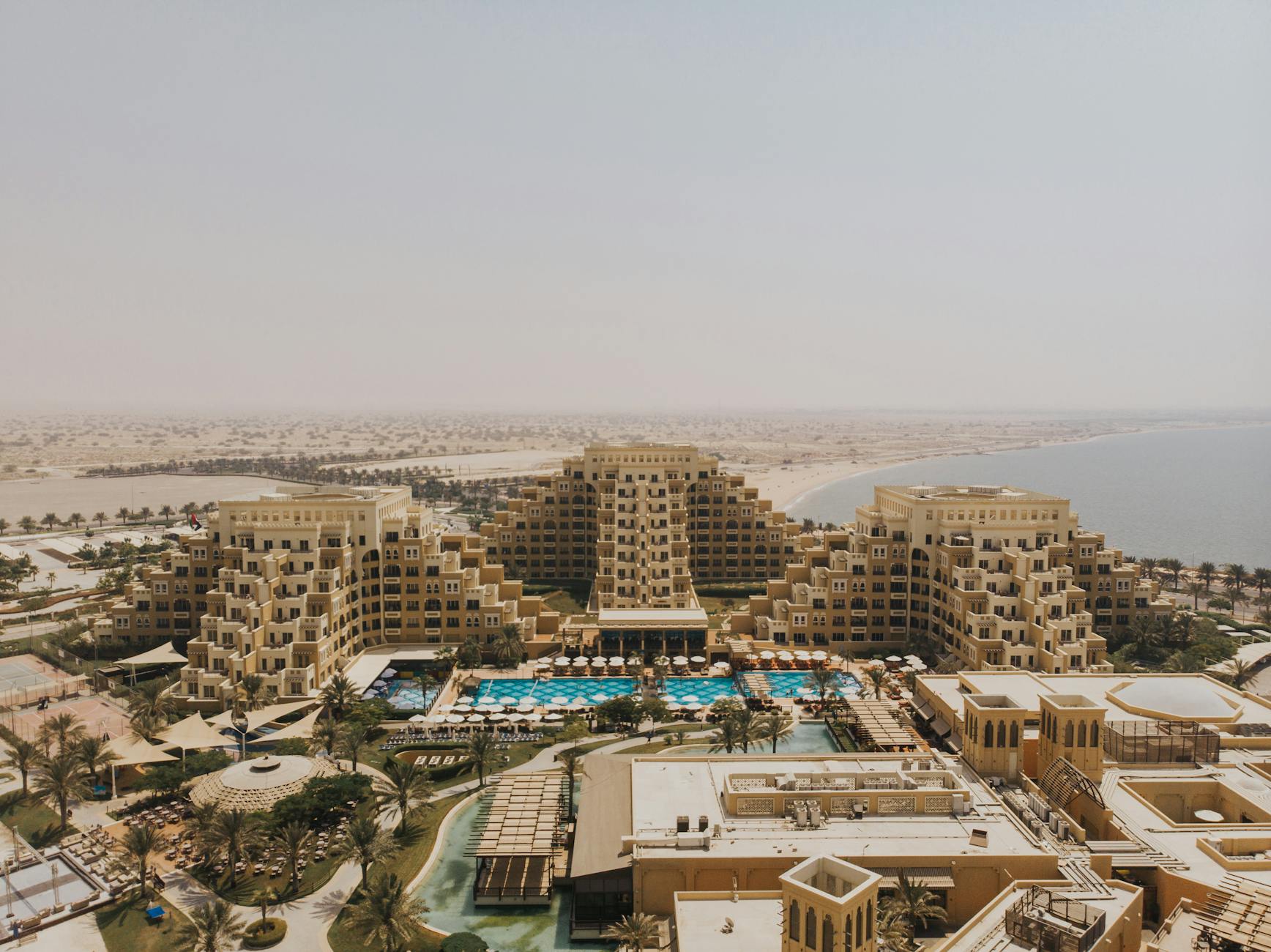
Are you a doctor considering a life-changing move to Saudi Arabia? The prospect of relocating to Saudi Arabia can be both exciting and daunting. With its world-class healthcare facilities and lucrative compensation packages, Saudi Arabia has become an increasingly attractive destination for medical professionals seeking new opportunities. This Guide Moving to Saudi Arabia: Relocation Guide for Doctors will help you and make the transition easy.
However, the journey from considering the move to Saudi Arabia can be complex. You might be wondering about the details of the Saudi healthcare system, visa requirements, or how to navigate cultural differences in your new workplace. Perhaps you’re concerned about balancing your professional aspirations with family considerations. Don’t worry—you’re not alone in these thoughts.
In this guide, we’ll walk you through everything you need to know about moving to Saudi Arabia as a doctor. From understanding the healthcare landscape to preparing for your big move, we’ve got you covered. Let’s dive into the essential aspects of your relocation journey, starting with a closer look at Saudi Arabia’s healthcare system and the visa process that awaits you.
Understanding Saudi Arabia’s Healthcare System
As you on your journey to practice medicine in Saudi Arabia, it’s crucial to familiarize yourself with the country’s healthcare system. This knowledge will help you navigate your new professional environment and make informed decisions about your career. Let’s dive into the key aspects of Saudi Arabia’s healthcare landscape.
A. Overview of public and private healthcare sectors
Saudi Arabia’s healthcare system is a mix of public and private sectors, each playing a significant role in providing medical services to the population.
Public Healthcare Sector
The public healthcare sector in Saudi Arabia is primarily managed by the Ministry of Health (MOH). It provides free or heavily subsidized healthcare services to Saudi citizens and, to some extent, expatriates working in the public sector.
Key features of the public healthcare sector:
- Covers about 60% of healthcare services in the country
- Operates a network of primary healthcare centers, secondary care hospitals, and specialized tertiary care facilities
- Focuses on preventive care and public health initiatives
- Implements national health programs and vaccination campaigns

Private Healthcare Sector
The private healthcare sector in Saudi Arabia has been growing rapidly in recent years, catering to both locals and expatriates who prefer more personalized care or shorter waiting times.
Characteristics of the private healthcare sector:
- Comprises about 40% of healthcare services
- Includes private hospitals, clinics, and specialized medical centers
- Often equipped with state-of-the-art technology and facilities
- Attracts many international healthcare professionals
- Typically serves patients with private health insurance or those who can afford out-of-pocket expenses
| Aspect | Public Sector | Private Sector |
|---|---|---|
| Cost | Free or heavily subsidized | Fee-based |
| Primary Users | Saudi citizens, public sector expatriates | Expatriates, affluent Saudis |
| Waiting Times | Can be longer | Generally shorter |
| Technology | Varies by facility | Often cutting-edge |
| Focus | Preventive care, public health | Specialized treatments, personalized care |
As a doctor relocating to Saudi Arabia, you may find opportunities in both sectors. Your choice will depend on your specialization, career goals, and personal preferences.
B. Specialties in high demand in Saudi Arabia
Saudi Arabia’s healthcare system is constantly evolving to meet the changing needs of its population. As you consider your move, it’s important to understand which medical specialties are currently in high demand. This knowledge can help you align your expertise with the country’s needs and potentially enhance your job prospects.
Some of the most in-demand medical specialties in Saudi Arabia include:
- Cardiology and Cardiac Surgery
- Oncology
- Neurology and Neurosurgery
- Pediatrics
- Obstetrics and Gynecology
- Emergency Medicine
- Intensive Care
- Family Medicine
- Orthopedics
- Psychiatry and Mental Health
The demand for these specialties is driven by several factors:
- As the population ages, the prevalence of chronic diseases rises.
- Lifestyle-related health issues such as obesity and diabetes
- Government initiatives to improve maternal and child health
- Growing awareness of mental health issues
- Efforts to reduce medical tourism by enhancing local specialized care
As a foreign doctor, your expertise in any of these areas could be particularly valuable. However, don’t be discouraged if your specialty isn’t on this list. Saudi Arabia’s healthcare system is comprehensive, and there are opportunities across various medical fields.
Related Articles:
C. Licensing requirements for foreign doctors
Before you can practice medicine in Saudi Arabia, you’ll need to obtain the necessary licenses and credentials. The process can be complex, but understanding the requirements will help you prepare effectively.
Steps to obtain a medical license in Saudi Arabia:
- Verification of qualifications: Submit your medical degree, postgraduate qualifications, and work experience certificates to the Saudi Commission for Health Specialties (SCFHS) for verification.
- Professional classification: Based on your qualifications and experience, the SCFHS will classify you into one of several professional categories (e.g., Consultant, Specialist, Resident).
- Prometric exam: You’ll need to pass a specialty-specific exam administered by Prometric on behalf of the SCFHS. This examination tests your medical knowledge and clinical skills.
- Saudi Council registration: After passing the exam, you must register with the Saudi Council for your specialty.
- Temporary license: Upon successful registration, you’ll receive a temporary medical license valid for up to one year.
- Permanent license: After working in Saudi Arabia for a specified period (usually one year) and meeting performance requirements, you can apply for a permanent license.
Additional requirements:
- Language proficiency: While many hospitals use English as the primary language of communication, knowledge of Arabic can be beneficial, especially when interacting with patients.
- Good standing certificate: You’ll need to provide a certificate of good standing from your current licensing body.
- Health clearance: A medical examination is required to ensure you’re free from communicable diseases.
Remember, the licensing process can take several months, so it’s advisable to start well in advance of your planned move.
D. Key medical institutions and hospitals
Saudi Arabia boasts a number of world-class medical institutions and hospitals. Familiarizing yourself with these facilities can help you understand potential work environments and career opportunities.
Notable public hospitals in Saudi Arabia:
- King Faisal Specialist Hospital & Research Centre (Riyadh and Jeddah)
- Renowned for: Oncology, organ transplantation, genetic diseases
- Features: Advanced research facilities, cutting-edge technology
- King Abdulaziz Medical City (Riyadh)
- Renowned for: Trauma care, cardiac services, neurosciences
- Features: Level 1 trauma center, state-of-the-art emergency department
- King Fahad Medical City (Riyadh)
- Renowned for: Comprehensive healthcare services
- Features: Four hospitals under one umbrella, including a children’s hospital and a rehabilitation hospital
- King Khalid University Hospital (Riyadh)
- Renowned for: Teaching and research
- Features: Affiliated with King Saud University, offering various residency and fellowship programs
Prominent private hospitals in Saudi Arabia:
- Dr. Sulaiman Al Habib Medical Group ( located in multiple locations)
- Renowned for: Multi-specialty care, advanced technology
- Features: Digital hospital concept, telemedicine services
- Saudi German Hospitals Group (located in multiple locations)
- Renowned for: Comprehensive healthcare services
- Features: International accreditations, modern facilities
- Mouwasat Medical Services ( located in multiple locations)
- Renowned for a wide range of specialties, patient-centered care
- Features: Advanced diagnostic and treatment technologies
- Dallah Healthcare (Riyadh)
- Renowned for: Quality healthcare services
- Features: Specialized clinics, advanced medical equipment
These institutions represent just a fraction of the healthcare facilities in Saudi Arabia. Each city and region has its own network of hospitals and clinics, both public and private, offering diverse opportunities for medical professionals.
As you consider your move to Saudi Arabia, take time to research these and other healthcare facilities. Look into their specialties, technologies, and work cultures to find an environment that aligns with your career goals and personal preferences.
Understanding Saudi Arabia’s healthcare system is a crucial first step in your relocation journey. With this knowledge, you’re better equipped to navigate the job market, licensing process, and professional landscape in your new home. As you continue your preparations, you’ll want to focus on the practical aspects of moving, including visa requirements and work permits. These essential details will ensure a smooth transition into your new role as a healthcare professional in Saudi Arabia.

Visa and Work Permit Process for Saudi Arabia
Now that you understand the healthcare system in Saudi Arabia, it’s crucial to navigate the visa and work permit process. This step is essential for doctors planning to relocate and practice medicine in the Kingdom. Let’s break down the key aspects of obtaining the necessary documentation to work legally in Saudi Arabia.
A. Timeline and costs for obtaining a work visa and permit in Saudi Arabia
The timeline for obtaining a work visa and permit in Saudi Arabia can vary, but you should expect the process to take anywhere from 2 to 4 months. It’s essential to start early and be prepared for potential delays.
Here’s a general timeline to keep in mind:
- Initial application submission: 1-2 weeks
- Document verification and processing: 4-6 weeks
- Medical examination and clearance: 1-2 weeks
- Visa issuance: 2-3 weeks
- Work permit processing: 2-3 weeks
As for costs, you’ll need to budget for various expenses throughout the process. Here’s a breakdown of potential fees:
| Expense Item | Approximate Cost (SAR) |
|---|---|
| Visa application fee | 2,000 – 3,000 |
| Work permit fee | 2,000 – 4,000 |
| Medical examination | 200 – 500 |
| Document authentication | 500 – 1,000 |
| Travel insurance | 500 – 1,500 |
Keep in mind that these costs are estimates and may vary depending on your specific situation and the requirements of your employer or sponsor.
B. Sponsorship and employment contracts
In Saudi Arabia, you must have a sponsor to obtain a work visa and permit. For doctors, this sponsor is typically your employing hospital or healthcare institution. Your sponsor plays a crucial role in the visa process and your legal status in the country.
Key points about sponsorship:
- Your sponsor is responsible for obtaining your work visa and permit.
- They act as your legal representative in Saudi Arabia.
- Your sponsor must provide you with an official employment contract.
When reviewing your employment contract, pay close attention to the following details:
- Contract duration
- Salary and benefits
- Working hours and leave entitlements
- Termination clauses
- Non-compete agreements
- Accommodation provisions
It’s advisable to have a legal professional review your contract before signing to ensure all terms are fair and in line with Saudi labor laws.
C. Required documentation for work permits in Saudi Arabia
Obtaining a work permit in Saudi Arabia requires a comprehensive set of documents. As a doctor, you’ll need to provide additional professional credentials. Here’s a list of the essential documents you’ll need to prepare:
- A Valid passport with at least six months of validity
- Passport-sized photographs (recent, with white background)
- Completed visa application form
- Official employment contract
- Educational certificates (authenticated and translated)
- Professional qualifications and licenses
- Medical degree and specialization certificates
- Proof of work experience (letters from previous employers)
- police clearance certificate from your home country
- Medical examination report (conducted in Saudi Arabia)
- Saudi Commission for Health Specialties (SCFHS) registration
To ensure a smooth process, follow these tips:
- Have all documents translated into Arabic by a certified translator
- Attest and Authenticate your documents through your home country’s foreign affairs ministry and the Saudi embassy
- Keep multiple copies of all documents, both physical and digital
D. Types of visas for medical professionals
As a doctor moving to Saudi Arabia, you’ll typically be applying for a work visa. However, it’s essential to understand the different types of visas available for medical professionals:
- Work Visa (Iqama)
This is the most common visa for expatriate doctors
Valid for the duration of your employment contract (usually 1-2 years)
Permits you to live and work in Saudi Arabia
Permits sponsorship of family members
- Business Visa
Suitable for short-term medical assignments or consultations
Valid for 30-90 days
Does not permit long-term employment
- Visit Visa
Appropriate for attending medical conferences or short training programs
Usually valid for 30 days
Cannot be used for employment purposes
- Exit/Re-entry Visa
Required for temporary trips outside Saudi Arabia during your employment
Single- or multiple-entry options are available
Must be obtained before leaving the country
- Final Exit Visa
Needed when permanently leaving Saudi Arabia after completing your employment
Cancel your work permit and residency status
Immediate family members can also benefit from permanent residency.
Full permission to work in the private sector without a sponsor.
You can own real estate for residential, commercial, and industrial use.
As you prepare for your move to Saudi Arabia, keep in mind that the visa and work permit process can be complex. It’s crucial to work closely with your sponsor and potentially seek assistance from a relocation specialist or legal advisor to ensure all requirements are met.
Remember that regulations can change, so always verify the most up-to-date information with official sources such as the Saudi Ministry of Foreign Affairs or your nearest Saudi embassy.
With your visa and work permit secured, you’ll be ready to embark on your new career in Saudi Arabia. Next, we’ll explore what living in Saudi Arabia entails, including housing options, transportation, and daily life in the Kingdom.

Living in Saudi Arabia
As you prepare for your move to Saudi Arabia as a doctor, understanding the day-to-day aspects of life in the Kingdom is crucial. This section will cover essential information about living in Saudi Arabia, including banking, transportation, cultural norms, cost of living, and housing options. Let’s dive into these key areas to help you navigate your new life in this fascinating country.
Read More:
Banking and Financial Matters
Setting up your finances is one of the first steps you’ll need to take when moving to Saudi Arabia. Here’s what you need to know:
- Opening a bank account: Most major Saudi banks offer services in English, making it easier for expats to manage their finances. Popular banks include:
- Saudi British Bank (SABB)
- Al Rajhi Bank
- Riyad Bank
- Saudi National Bank (SNB)
- Required documents: To open a bank account, you’ll typically need:
- Your passport
- Residence permit (Iqama)
- Proof of employment (usually a letter from your employer)
- Proof of address (utility bill or rental agreement)
- Islamic banking: Be aware that many Saudi banks operate under Islamic banking principles, which prohibit interest and certain types of investments.
- Currency: The Saudi Riyal (SAR) is pegged to the US Dollar at a fixed rate of 1 USD = 3.75 SAR, which helps maintain stability for expats earning in SAR.
- ATMs and card payments: ATMs are widely available in urban areas, and credit/debit card payments are accepted in most establishments.
| Bank Feature | Description |
|---|---|
| Online banking | Most banks offer robust online and mobile banking services |
| International transfers | Available, but may have fees and restrictions |
| Multi-currency accounts | Some banks offer accounts in various currencies |
| Sharia-compliant products | Many banks offer Islamic banking options |
Transportation and Getting Around
Getting around in Saudi Arabia can be challenging at first, but understanding your options will help you navigate with ease:
- Driving:
- As of 2018, women are legally allowed to drive in Saudi Arabia.
- You can use your home country’s license for up to three months after arrival.
- To obtain a Saudi driving license, you’ll need to pass a written test and a practical driving test.
- Be aware that driving in Saudi cities can be chaotic, and traffic rules are sometimes loosely followed.
- Public transportation:
- Major cities like Riyadh and Jeddah are developing metro systems, but they’re not yet fully operational.
- Buses are available in some cities but are not always reliable or comfortable.
- Taxis and ride-hailing:
- Traditional taxis are available but may not always use meters.
- Ride-hailing apps like Uber and Careem are widely used and often more convenient.
- Walking:
- Walking is not always practical due to the hot climate and lack of pedestrian-friendly infrastructure in many areas.
- Air travel:
- Domestic flights are available between major cities and are often the most convenient way to travel long distances within the country.
Cultural Norms and Etiquette
Understanding and respecting Saudi cultural norms is crucial for a successful transition. Here are some key points to consider:
- Dress code:
- Men should dress modestly.
- face covering is no longer mandatory, many Saudi women still wear it.
- Gender segregation:
- Many public spaces, including restaurants and government offices, have separate areas for men and families (which include women).
- In healthcare settings, you may encounter gender-specific waiting areas and preferences for same-gender healthcare providers.
- Religious observances:
- Be respectful of prayer times, especially during Ramadan when eating, drinking, and smoking in public during daylight hours is prohibited.
- Businesses may close briefly during prayer times.
- Greetings and interactions:
- Use “As-salaam-alaikum” (peace be upon you) as a greeting.
- Shake hands with people of the same gender, but wait for a woman to extend her hand first.
- Avoid public displays of affection, even between married couples.
- Alcohol and pork:
- Both are prohibited in Saudi Arabia.
Cost of Living Comparison in Saudi Arabia
Understanding the cost of living in Saudi Arabia compared to your home country is essential for financial planning. Here’s a general overview:
| Expense Category | Comparison to Western Countries |
|---|---|
| Housing | Generally lower, especially outside major cities |
| Food | It can be expensive, especially in compounds and high-end venues |
| Transportation | Fuel is very cheap, but car prices may be higher |
| Healthcare | Often provided by employers, otherwise can be expensive |
| Education | International schools are expensive, local schools are more affordable |
| Utilities | Generally lower due to subsidized electricity and water |
| Entertainment | Can be expensive, especially in compounds and high-end venues |
It’s important to note that while some aspects of life in Saudi Arabia can be more expensive, many expat doctors find that their overall cost of living is lower due to tax-free salaries and employer-provided benefits.
Housing Options and Considerations
Choosing the right housing is crucial for your comfort and adaptation to life in Saudi Arabia. Here are your main options:
- Compound living:
- Gated communities popular among ex-pats
- Often include amenities like pools, gyms, and social activities
- Provide a more relaxed environment where Western norms are generally accepted
- It can be more expensive but often preferred by expat families
- Apartments:
- Available in various sizes and price ranges
- More integrated into local communities
- May require more cultural adaptation
- Often more affordable than compound housing
- Villas:
- Standalone houses, sometimes within compounds
- Offer more space and privacy
- It can be expensive, especially in desirable areas
- Employer-provided housing:
- Many healthcare employers offer housing as part of the compensation package
- Quality and location can vary, so clarify details before accepting a position
When choosing your housing, consider the following things:
- Proximity to your workplace
- Access to schools if you have children
- Availability of transportation options
- Safety and security of the area
- Cultural environment (more traditional vs. more expat-friendly)
Living in Saudi Arabia as an expat doctor can be a unique and rewarding experience. By understanding the banking system, transportation options, cultural norms, cost of living, and housing choices, you’ll be well-prepared to make the most of your time in the Kingdom. Remember that adaptation takes time, and maintaining an open mind will help you navigate the challenges and appreciate the opportunities that come with your new life in Saudi Arabia.
FAQs
What is the cost of living as an expat in Saudi Arabia?
Living in Saudi Arabia can be more affordable than in many Western countries. Rent, utilities, and groceries are often cheaper, especially in cities like Riyadh and Jeddah. But, some luxury goods and imported items might cost more.
What are the visa requirements for medical professionals moving to Saudi Arabia?
Medical professionals need a work visa for Saudi Arabia, which requires a job offer from a Saudi employer. You must also have your medical qualifications and licenses verified. The process is detailed, so make sure you have all your documents ready.
How can I find suitable accommodation as an expat in Saudi Arabia?
Expat-friendly housing options in Saudi Arabia include apartments, villas, and gated communities. Areas like the Diplomatic Quarter in Riyadh cater to expats with amenities and facilities. Research different neighborhoods and use a trusted real estate agent to find a place that suits your needs and budget.
What is the healthcare system like in Saudi Arabia, and how can I obtain a medical license?
Saudi Arabia boasts a well-developed healthcare system with public and private options. To work here, you’ll need a license from the Saudi Commission for Health Specialties (SCHS). This involves verifying your qualifications and passing exams.
How can I prepare for the cultural differences when moving to Saudi Arabia?
Saudi Arabia’s culture and customs are quite different from what you might be used to. Learning about the local etiquette, dress code, and social norms is key. This knowledge will help you avoid cultural mistakes and settle in smoothly.
What are the benefits of working as a medical professional in Saudi Arabia?
Medical professionals in Saudi Arabia enjoy competitive salaries, tax-free income, and generous benefits. The country offers chances for professional growth, with access to top medical facilities and diverse patient cases. Life in Saudi Arabia can be comfortable, with a good standard of living and many leisure and cultural activities.


